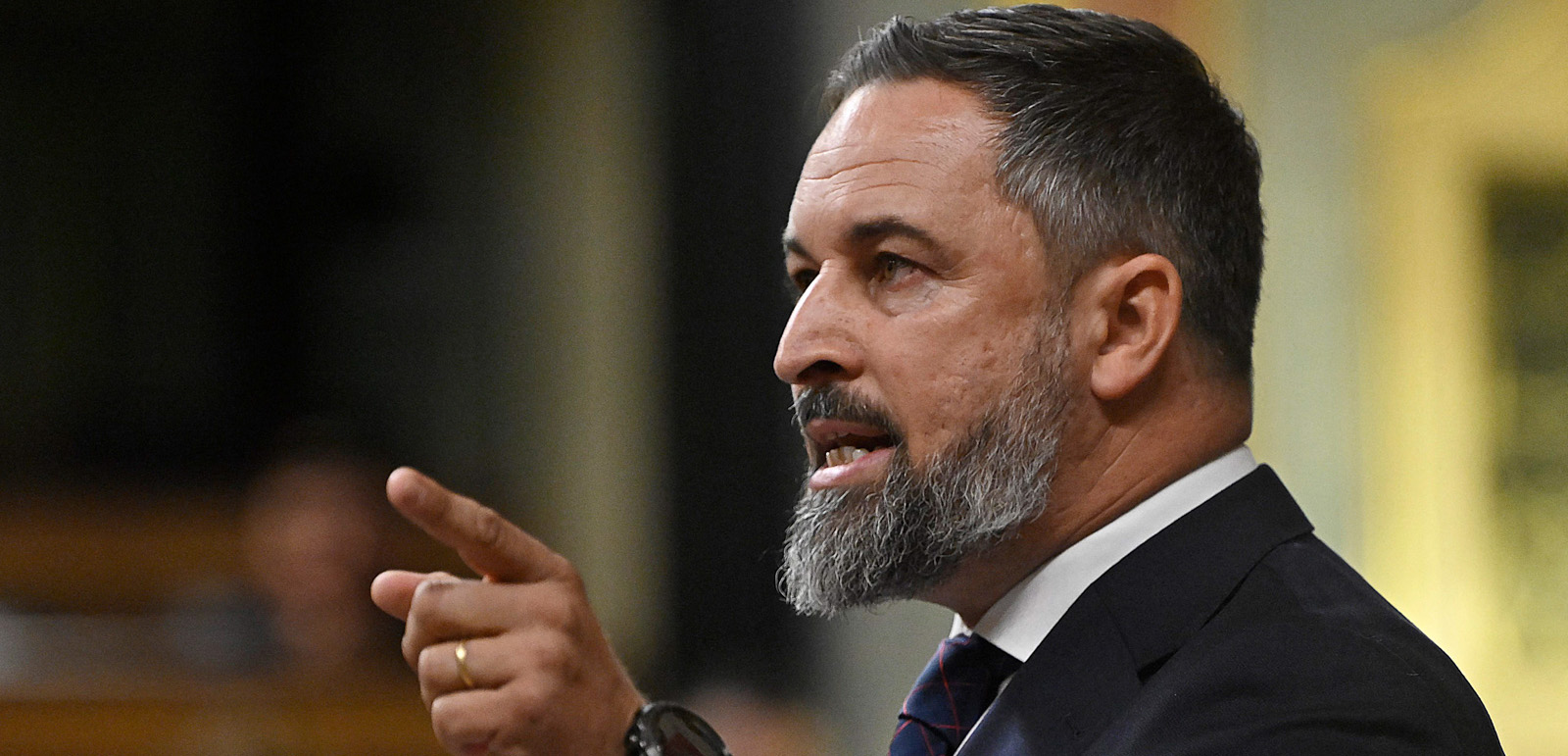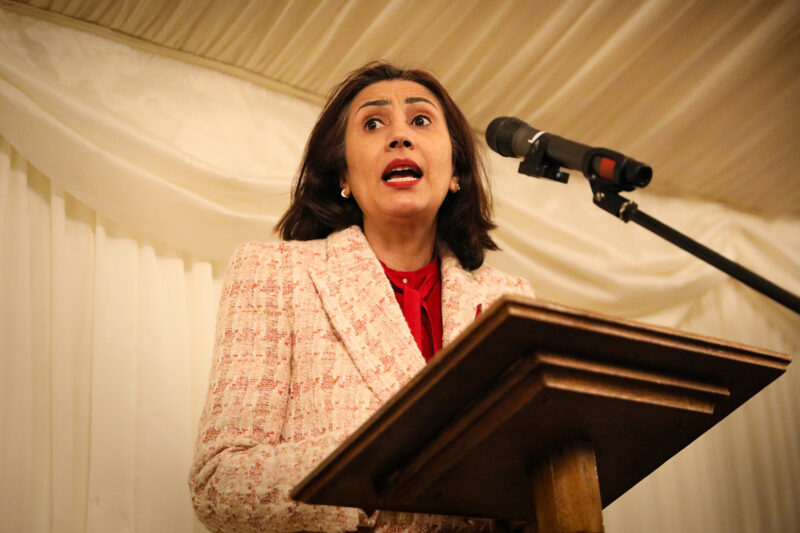Spain’s far right pushes for a ban on Spanish nationality for people from ‘Islamic culture’
Muslim leaders and legal experts have dismissed Vox’s proposal as a cynical ploy to exploit terror attacks in Brussels and Israel to gain votes

Spain’s ultra-right party Vox has registered a proposal with Congress to deny nationality and residency to immigrants from countries with a predominantly Islamic culture while blocking entry to new Muslim arrivals “so long as we cannot ensure their correct and peaceful integration into our territory”.
Vox tabled its proposal on 17 October, on the same day its leader Santiago Abascal published an inflammatory post on social media platform X (formerly Twitter) pointing to the terrorist attack in Brussels on 16 October in which two Swedes were killed and the Hamas attack on southern Israel on 7 October that left more than 1,400 Israelis dead as examples of Muslim violence.
“All those with no soul who bring hatred, pain and death must absolutely be brought down,” the Vox leader wrote. “And if possible, brought down before they kill a single innocent person. In Barcelona, in Brussels or in Israel. But first they must be prevented from entering, and those who have opened the doors to them must be held accountable.”
Moderators at X, owned by Elon Musk since 2022, flagged Abascal’s post as violating the platform’s rules around hate speech but did not take it down, arguing public interest.
An anti-Islamic stance and a hard line on illegal immigration has been central to Vox’s rhetoric since the party was established back in 2013. The party lost a third of its MPs in general elections this July, with its share of the vote dropping from 15% to 12%. However, it retained power either alone or in coalitions with conservatives in six of Spain’s 17 regions and in 16 of its regional capitals.
In an article on its website arguing the case for the ban, Vox flagged data from Spain’s National Institute of Statistics (INE) showing a 26% rise in Spanish naturalisations in 2022, 30.5% of them granted to people of Moroccan origin. The party neglected to point out that 42% of Moroccans granted nationality last year were born in Spain.
Mesa de Congreso, the governing body of Spain’s Congress, has yet to decide whether Vox’s proposal meets the criteria for debate in the house. Legal experts and human rights organisations, however, have been prompt to condemn the motion.
Political analyst Pablo Simón told Hyphen that even if Vox’s proposed legislation is approved for debate, their motion is unlikely to pass as it would not win a majority vote, even with the backing of Spain’s main conservative parties, the People’s Party and the Navarre People’s Union.
Diego López Garrido, vice-president of the independent political thinktank Fundación Alternativas, pointed out that if Congress throws out the proposal, Vox could still try to push it through the Senate. He also believes,however, that it is destined to fail. “It is a brazen attack on religious liberty and violates article 16 of the constitution, which is sacred,” he said. “I think they absolutely know this is doomed to failure. It is strictly politicking. A bid for votes. They are exploiting not only the events in Brussels and Israel but immigration itself, which they consider brings with it a lot of crime.”
There are now 872,759 people of Moroccan origin registered with local authorities in Spain and 2.3 million Muslims, according to the INE. The country’s immigration boom over the past 25 years, which has seen Spain’s foreign population soar from 1.6% in 1998 to 17.2% in 2023, has fuelled aggressive anti-immigrant discourse from the right wing. Abascal’s tweet on the the day of the Brussels terrorist attack summed up Vox’s position: “Multiculturalism is suicide”.
Despite the rise of anti-immigrant rhetoric in Spain, Mohamed Ajana, secretary-general of Spain’s Islamic Commission, trusts the Spanish parliamentary system to block any attempt to formalise xenophobia in law: “We believe Vox’s proposal is unnecessarily alarming and trust that the legal framework here in Spain takes into consideration factors that are non-religious when deciding who is eligible for nationality. As in the rest of Europe, political parties here can come up with such motions, but we think Spanish society is moderate in general and firmly believe this is not going to have an impact on our community.”
Mohammed Azahaf, an adviser in the governing coalition’s Ministry of Inclusion and Migration, agrees. “The maturity of Spanish society is far greater than that of the Vox politicians,” he told Hyphen. “It’s a disgrace that Vox is putting forward a proposal so obviously in breach of the constitution when it claims to be its guardian [regarding Catalan independence]. The proposal is not only absurd, it is xenophobic, as if everyone from such a broad collective can be judged as a potential terrorist. They want to insist on this link to reinforce their appeal to their voters.”
If Congress does decide to accept Vox’s motion to ban granting citizenship to Muslims in Spain – and it should decide by 6 November – it will be scheduled for debate in parliament before being submitted to a vote.
 Newsletter
Newsletter













